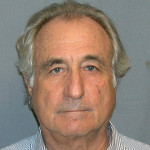 Gardere Wynne Sewell LLP announces that financial restructuring and reorganization partner John P. Melko was inducted by the American College of Bankruptcy as a Fellow in the 27th Class of the College.
Gardere Wynne Sewell LLP announces that financial restructuring and reorganization partner John P. Melko was inducted by the American College of Bankruptcy as a Fellow in the 27th Class of the College.
Melko was among 31 professionals from across the country recognized by The American College of Bankruptcy for their professional excellence and exceptional contributions to the fields of bankruptcy and insolvency. Honorees reside in 19 states and two foreign countries. The induction took place on March 18 in Washington, D.C., at the Smithsonian Donald W. Reynolds Center for American Art and Portraiture.
“John represents the highest standard of professionalism in the legal industry as evidenced by his ongoing commitment to the enhancement of bankruptcy and insolvency law,” says Firm Vice Chair Eric Blumrosen. “We congratulate him on this prestigious recognition.”
In a release, the firm said Melko is a partner and chair of Gardere’s financial restructuring and reorganization practice group. His practice focuses on complex sales, acquisitions, bankruptcies and financings in the energy sector throughout the U.S., as well as shipping-related issues in both foreign and domestic cases and financings. Melko has years of cross-border and multinational experience with oil and gas exploration and production, refining and marketing, airlines, telecommunications, electric utilities, manufacturing, retail, rig and ship finance, mass torts and asset-backed securities.
“John is greatly respected by his clients and peers for not only his experience, but also for his character and integrity,” says Deirdre B. Ruckman, a partner in the Firm’s financial restructuring and reorganization practice and a Fellow of The American College of Bankruptcy. “He fully embodies these traits in his every day practice and is a great addition to the fellowship of The American College of Bankruptcy.”
Fellowship nominees undergo a rigorous nomination process and are extended an invitation to join based on a record of achievement. The American College of Bankruptcy now has 848 active Fellows, not including Class 27, each selected by a Board of Regents from among recommendations of the Circuit Admissions Council in each federal judicial circuit and specially appointed Committees for Judicial and Foreign Fellows.
The American College of Bankruptcy is an honorary professional and educational association of bankruptcy and insolvency professionals. The College sustains professional excellence and supports educational and pro bono efforts in local communities around the country. The fellowship includes commercial and consumer bankruptcy attorneys, insolvency accountants, turnaround and workout specialists, law professors, judges, government officials and others involved in the bankruptcy and insolvency community.

 Businesses need to have written protocols in place to deal with bankruptcy filings by their employees and independent contractors, or they risk serious sanctions and, potentially, punitive damages for violations of the bankruptcy laws, according to
Businesses need to have written protocols in place to deal with bankruptcy filings by their employees and independent contractors, or they risk serious sanctions and, potentially, punitive damages for violations of the bankruptcy laws, according to 

 A federal judge has ordered Bernard Madoff to submit to a deposition by lawyers for some former customers who lost money when the imprisoned swindler’s firm collapsed in December 2008,
A federal judge has ordered Bernard Madoff to submit to a deposition by lawyers for some former customers who lost money when the imprisoned swindler’s firm collapsed in December 2008,  Gardere Wynne Sewell LLP
Gardere Wynne Sewell LLP Justice Antonin Scalia’s death is big news in the larger political world, leaving a Supreme Court that may be evenly split on a wide range of politically and socially charged legal questions, writes
Justice Antonin Scalia’s death is big news in the larger political world, leaving a Supreme Court that may be evenly split on a wide range of politically and socially charged legal questions, writes 